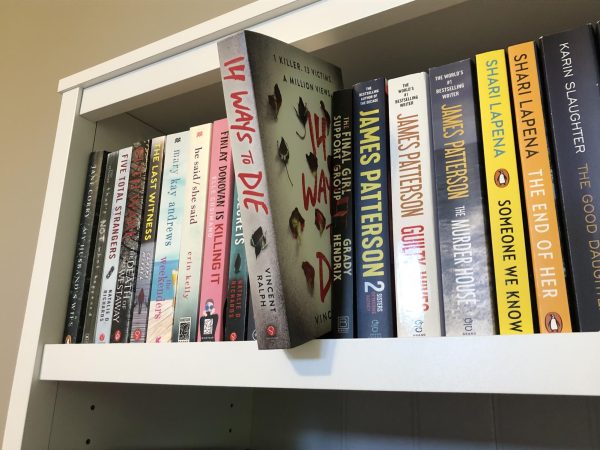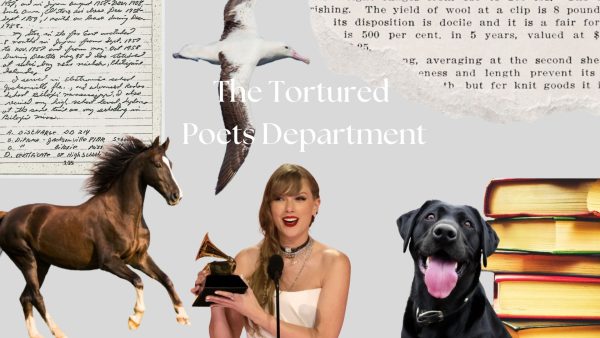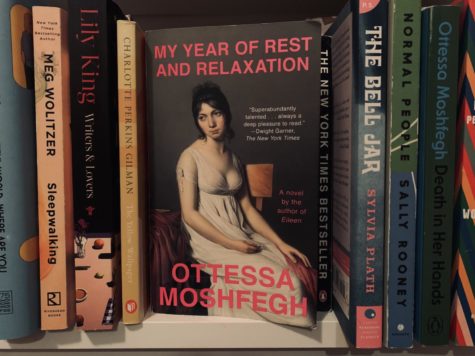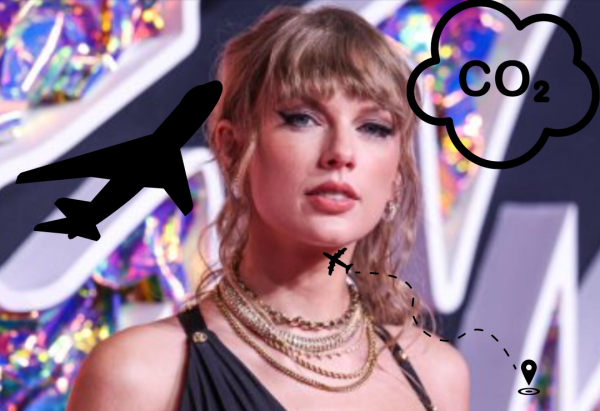Remembering Joan Didion
Joan Didion permanently changed the world of writing, reading, and journalism.
On Dec. 23, 2021, news regarding the death of Joan Didion broke, causing a flurry of commemorations, remembrances, and tributes to the writer. Didion’s impact on the landscape of modern journalism cannot be overstated, as both her fiction and nonfiction work she left behind has shaped an entire generation of writers and readers. Through her honest storytelling and stark narrative style, Didion permanently changed the way we present and consume stories.
Didion’s work often portrayed lush depictions of a real and imagined California. Her first novel, “Run River” describes the history of California written through the lens of a homesick Didion who had recently moved to New York, while Didion’s final published work “Let Me Tell You What I Mean” bookends her career with pieces commemorating what being a writer meant to her.
Her essay collection, “The White Album” exists as both a love letter to and a critique of the 1960s and its impact on the following decade. The essay from which the book derives its title discusses Didion’s career as a journalist and her encounters with a myriad of people ranging from Huey Newton to Linda Kasabian to Roman Polanski. Similarly, “Slouching Towards Bethlehem” collects some of Didion’s most acutely written articles she had previously published in Saturday Evening Post.
Though Didion was renowned for her nonfiction works, novels such as “Play It As It Lays” and “The Last Thing He Wanted” demonstrates her skill in crafting imagined narratives. “Play It As It Lays” sets the scene in a fictionalized 1960s Hollywood. The story follows Maria, an actress suffering through a psychiatric crisis that puts her in a sanitorium, as well as the people in her life with whom she interacts and conflicts frequently. The novel has received tremendous praise for its discussions of the honest and grotesque nature of trauma and recovery.
In 2003, Didion’s daughter, Quintana, had been placed in the hospital with a severe case of pneumonia that had progressed into septic shock. Following a visit to her comatose daughter, Didion’s husband and frequent collaborator, John Dunne, suffered a heart attack and died suddenly. This sudden tragic event led to Didion’s most revered work, “The Year of Magical Thinking”. As a poignant depiction of grief and renewal, Didion shares both her analytical and seemingly irrational responses to her grief. In a particularly striking sequence, Didion describes cleaning out Dunne’s closet and deciding to keep his work shoes in case he ever came back and needed them.
While promoting “The Year of Magical Thinking”, Didion’s daughter died of complications caused by a head injury. Years later in 2011, Didion released “Blue Nights”, a memoir recounting her experience with motherhood from Quintana’s adoption to her months-long hospital stay to the moment she died. She reflects upon Quintana’s life and relays her guilt of outliving her only child whom she felt had so much more life to live.
Didion’s work extends beyond literature with her work in film and playwriting. Making her screenwriting debut in 1971, Didion co-wrote the film “The Panic in Needle Park” with Dunne. Her work is also noted in the 1976 “A Star is Born”, “True Confessions”, and “Up Close and Personal”. Didion’s own work has also been adapted into a film, with “Play It As It Lays”, and a Broadway play, with “The Year of Magical Thinking”.
In 2017, Netflix debuted a documentary entitled “The Center Will Not Hold”, detailing Didion’s writing career, beginning with her first writing job at Vogue and ending with her critically acclaimed body of work.
In the face of Didion’s passing, friends and fans alike shared messages on social media honoring her legacy and thanking her for her many contributions to the literary world.
I know why we try to keep the dead alive: we try to keep them alive in order to keep them with us. I also know that if we are to live ourselves there comes a point at which we must relinquish the dead, let them go, keep them dead.
— Joan Didion
Your donation will support the student journalists of West Linn High School. Your contribution will allow us to continue to produce quality content by purchasing equipment, software, and continuing to host our website on School Newspapers Online (SNO).

Lily Gottschling, senior, is the Copy Editor-in-Chief for wlhsNOW.com. She loves writing reviews, features, and opinions. She is also a co-host of the...


























![Game, set, and match. Corbin Atchley, sophomore, high fives Sanam Sidhu, freshman, after a rally with other club members. “I just joined [the club],” Sidhu said. “[I heard about it] on Instagram, they always post about it, I’ve been wanting to come. My parents used to play [net sports] too and they taught us, and then I learned from my brother.”](https://wlhsnow.com/wp-content/uploads/2024/03/MG_7715-2-1200x800.jpg)





![The teams prepare to start another play with just a few minutes left in the first half. The Lions were in the lead at halftime with a score of 27-0. At half time, the team went back to the locker rooms. “[We ate] orange slices,” Malos said. “[Then] our team came out and got the win.”](https://wlhsnow.com/wp-content/uploads/2023/10/IMG_2385-1200x800.jpg)





![At the bottom of the third inning, the Lions are still scoreless. Rowe stands at home plate, preparing to bat, while Vandenbrink stands off to the side as the next batter up. Despite having the bases loaded, the team was unable to score any runs. “It’s just the beginning of the season. We’re just going to be playing out best by June, [and] that’s where champions are,” Rowe said.](https://wlhsnow.com/wp-content/uploads/2024/03/IMG_3077-1200x900.jpg)












































































